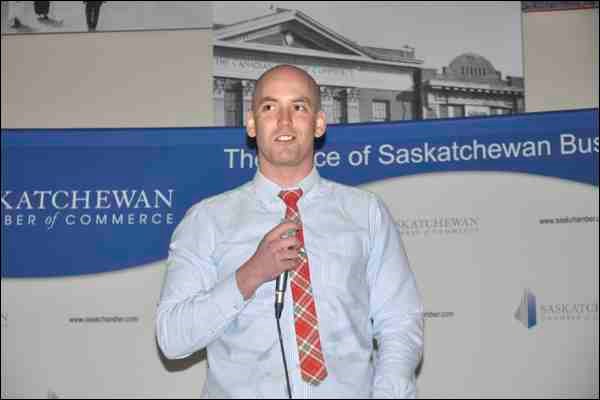The Saskatchewan Chamber of Commerce annual general meeting and Conference on Business wrapped up May 9 in North Battleford with some energetic guest speakers.
Regina-based marketing consultant Jeph Maystruck and Chamber turnaround expert Patrick McGaughey closed out the two days of activity for chamber members from across the province at the conference's final session at the Dekker Centre.
Maystruck's high-energy and sometimes edgy presentation to the representatives in attendance focused on how businesses can best navigate social media, including YouTube, Facebook and Twitter, to best market their products.
While he focused on the new technology and on how businesses can stand out using humor and the like to get noticed, he reminded chamber members that word-of-mouth remains the most powerful way to market products and to focus on that.
"If you're not worried about your word-of-mouth strategy in your planning session this year, you're going to fail," Maystruck said.
McGaughey's presentation skills had been highly touted well before the chamber conference by the local organizers at the Battlefords Chamber.
He had led three successful local chamber of commerce in the United States, with his efforts in Coeur d'Alene, Idaho attracting over 1,000 members there.
He did not disappoint in delivering a compelling presentation, as he focused on the theme of "Strong Chamber, Strong Community" - referring to the role that individual chambers have as a non-partisan voice for business in their communities.
He described the chamber as the "most powerful powerless organization ever created"," insofar as they are granted no authority but have power due to "members" and "money," he said.
"We are the barometer for our community," said McGaughey. "We are as equally important to our community forecasting as an economist is."
He also suggested a strong chamber also meant strong government. The way chambers make governments strong is to "simply hold them to the fire," said McGaughey.
He urged chambers to be proactive and sit in on city planning sessions from the beginning, and develop a relationship with local governments.
"You're not going to be a reactive force, like many of us are - you're going to be a proactive force," said McGaughey.




